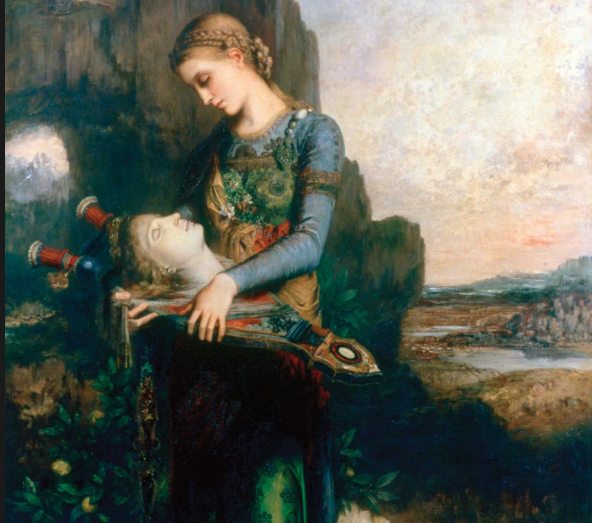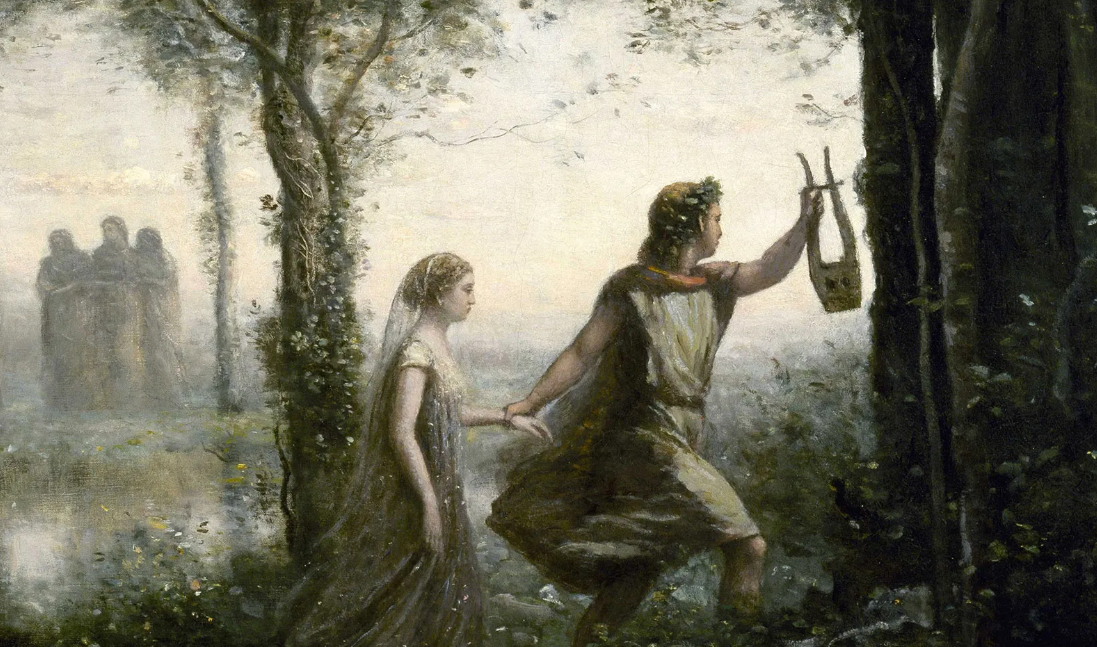By Evridiki Fatolia,
The story of Orpheus and Eurydice is one of the most moving and well-known mythological narratives of ancient Greece. Orpheus was a legendary musician and poet and he was ranked among the most important heroes of Greek mythology, with his ability to play his lyre and enchant the nature around him, as well as the gods. Eurydice, on the other hand, was a beautiful forest nymph who was destined to become Orpheus’s beloved, and her tragic fate was the cause of the saddest and most emotionally charged story of antiquity. The story of their relationship and Orpheus’s sacrifice to save her from the Underworld has been a source of inspiration for countless writers, poets, artists, and composers throughout the centuries.
The story begins when Orpheus, after a marriage filled with happiness with Eurydice, experiences incredible pain when she loses her life from a snake bite. The tragedy reaches its climax when Orpheus decides to descend into the Underworld to bring her back to life. With the power of his music and his lyre, he manages to soften the hearts of the gods of the Underworld and secure permission to return with Eurydice to the world of the living. However, the last condition to bring her back was not to look at her until they reached the surface. Orpheus, however, broke this command, and thus Eurydice was lost again forever.
This story is full of symbolism and has been analyzed in various ways throughout the history of philosophy, literature, and art. Among the most widespread theories are the psychological and existential analyzes of the relationship between Orpheus and Eurydice. On the one hand, Orpheus can be seen as the personification of the human desire to overcome death, while Eurydice represents the fleeting nature of life. Orpheus’s sacrifice and his fateful failure to keep his vow reflect the tragic side of human existence: no matter how hard we try, we cannot escape fate.

On the other hand, the myth has also been linked to music as a divine power. With his music, Orpheus not only tamed nature but also elevated music and art to a position of divine value. He was the first to use art to try and break the laws of nature. Thus, his failure to save Eurydice can be interpreted as humanity’s tragic acceptance that death and natural laws are immutable, despite the best efforts of art and creation.
Additionally, from a more philosophical perspective, the story of Orpheus and Eurydice has been interpreted as an allegory for the limitations of human perception and the nature of pain and loss. Orpheus’s agreement not to look back at Eurydice on their return from the Underworld has been interpreted as a parable of the inevitable nature of desire and disappointment. The more we desire something, the greater the disappointment when we lose it. Orpheus, by violating the divine limit, symbolizes the human tendency to want to control and understand everything, even when it means breaking natural or moral rules.
Another interesting theory concerns the interpretation of Orpheus and Eurydice as symbols of the contradictions within the human psyche. Orpheus, with his music, plays with the powerful contrast between life and death. His attempt to bring life back from death without acknowledging the terms of his fate reflects the human desire for freedom and the inability to accept the inevitable.
The story of Orpheus and Eurydice remains an enduring symbol of the human endeavor to transcend the boundaries of mortality and preserve love and life. Whether through art or existential acceptance, its numerous interpretations offer a timeless recognition of the power of love, but also of the limitations of human destiny.
Reference
- Ο μύθος του Ορφέα στη λογοτεχνία και στις άλλες τέχνες. Σύγκριση. Available here




